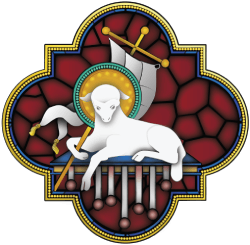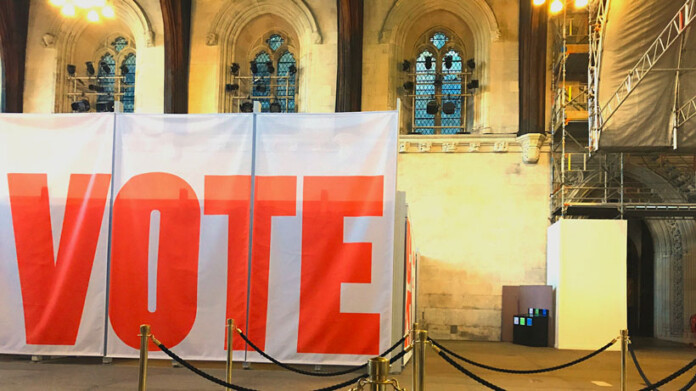America generally seeks to maintain “separation of church and state.” But the familiarity of that cliche obscures the fact that there inevitably are intersections of church and state.
Voting often is seen as a righteous act, or even a moral duty, and churches have a long history of encouraging people to vote. The Episcopal Church’s Office of Government Relations has launched an extensive “Vote Faithfully” toolkit before Election Day in November to help churches and dioceses in the United States encourage voting and otherwise engage with secular governance.
The toolkit includes six bulletin inserts and graphics sized for social media or use in newsletters, and all materials are available in English and Spanish. The bulletin inserts are intended for use beginning September 15, two days before National Voter Registration Day. Other inserts describe how to vote, why it is important, and how to detect misinformation in political campaigns.
The office has produced an Episco-Pols public policy podcast since early 2023, and the most recent episodes focus on voting. “We have this privilege of living in a democratic republic, where our voices are heard, so we have a chance to weigh in,” said Rebecca Linder Blachly, director of government relations, in the episode introducing the topic. “The planning, as we approach November, needs to happen now.”
The increased incidence of violent political rhetoric “raises the importance of embodying healthy civic engagement,” said Alan Yarborough, who as church relations officer leads the election engagement effort.
Separately, a brother at the Society of Saint John the Evangelist is developing a video series to be released weekly beginning in September, culminating in an in-person and online vigil on Election Night. The purpose is “to explore the Christian call to engage politically, how we do that faithfully in 21st-century democracy, while committed to God and the upbuilding of the common good,” said Br. Lucas Hall.
The videos will feature conversations with guest speakers, and seek to reinforce that there is a “meaningful vocation or call for the church as a collective and for us as individual Christians to to reckon with questions in the political realm,” he said.
“There’ll be one final video that comes out after Election Day,” he said. In his interviews with each speaker, he asks, “How would you encourage people listening to this to think and to act and to pray with these political questions that we’ve raised?”
St. Stephen’s in Richmond, the largest church in the Diocese of Virginia, is very engaged in political discourse, but it stops short of urging parishioners to vote. Rector John Rohrs said the parish has large contingents of supporters of both major presidential candidates, and he worries that a get-out-the-vote effort might be seen as too political.
He knows many parishioners will be upset after the election, so he’s planning a “Week of Compassion” beginning the Sunday after the election, “creating a number of opportunities for our congregation members to engage in active ministry and service in the community together, all ages, you know, some daytime events, some evening events, some weekend events, intergenerational opportunities,” he said. Specific plans are still in development, but are likely to include volunteer work in the parish’s food ministries, and volunteer construction or maintenance efforts with community partners.
The church will continue a tradition of creating “turkey boxes” to donate at Thanksgiving, as an intergenerational effort. “One of the things the children have done is make cards or little pieces of art to put in each box and to sort of send prayers and well wishes,” said the Rev. Cate Anthony, associate rector.
Leading to the election, she will lead a weekly “Sacramental Citizenship” workshop based on a program she developed as an Episcopal Church Foundation fellow.
“The program looks to help participants form their own sense of personal ethics, using the Baptismal Covenant, which is, I think, an ethical document,” she said. “We use the Baptismal Covenant to sort of parse out personal values.”
Then the program applies those values to hot-button issues. “So we talked about war, climate change, abortion, and LGBTQ rights, specifically focusing on marriage,” she said. The group will meet on Wednesdays, and the meeting on the day after the election will be devoted primarily to prayer.




